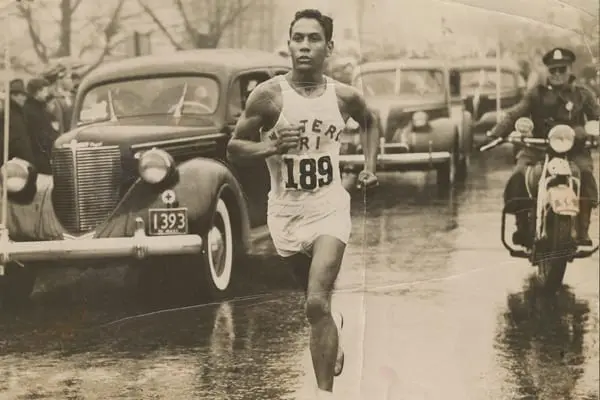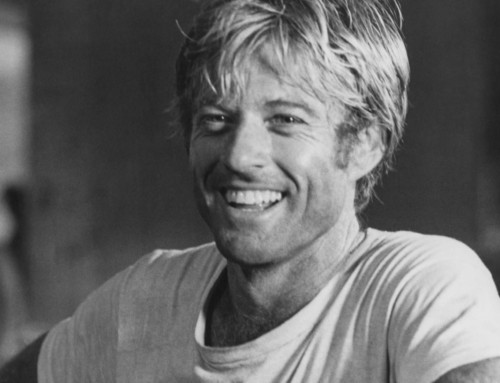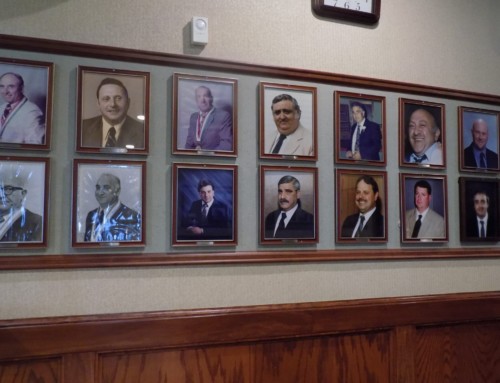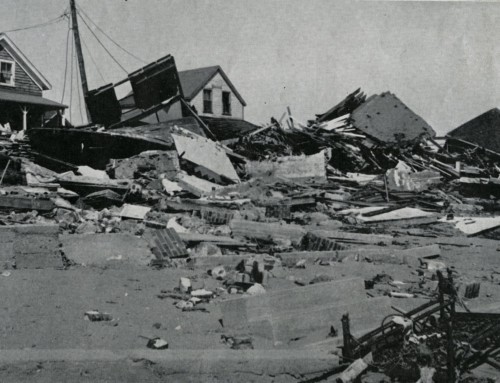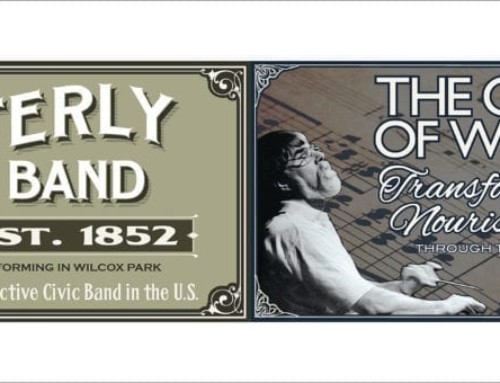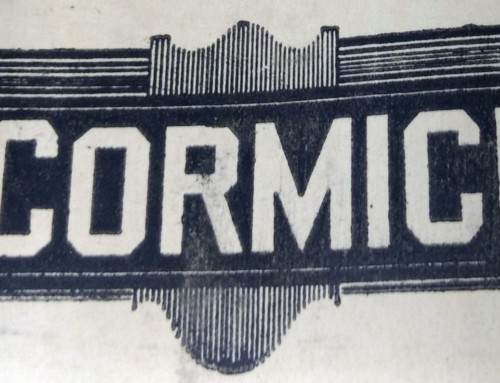While numerous athletes who have achieved a great deal of fame in the sports world have come out of Westerly, perhaps none is more revered than Ellison M. ‘Tarzan’ Brown, winner of the 1936 and 1939 Boston Marathons. Brown, a member of the Narragansett tribe, was born in Westerly on September 22, 1913, the fifth of eight children born to Byron Otis and Grace Ethel (Babcock) Brown.[1]
Although popular lore of the day suggested Tarzan grew up on the Narragansett Reservation, census records show that the family lived on Potter Hill Road between 1915 and 1920, before moving to Pierce Street by 1925.[2] Tarzan Brown dropped out of school in the eighth grade and by 16, he was working as a laborer with the railroad in Alton, Rhode Island.[3]
Chief Horatio N. Stanton of the Narragansetts discovered Brown’s talent for distance running early on and inspired him to pursue this path.[4] While most knew him simply as ‘Tarzan,’ he was also known to some as ‘Deerfoot.’[5] Brown’s ‘rhythmic foot motion’ is said by veteran runners to be ‘the most perfect they have ever seen,’ a trait which aided his early success.[6]
On April 16, 1935, Tarzan’s mother, Grace Brown, passed away and just two days later, her son took part in his third start in the Boston Marathon. At 21, Tarzan Brown had never finished higher than 13th place, however, this time, he finished 13th overall, showing a strong improvement.[7] Even more impressive was the fact that he completed the final six miles of the race without his shoes, as he was forced to remove them after they caused him pain and difficulty in running.[8]
Despite his challenges at a young age, Tarzan was not discouraged. His early career was marked by ups and downs, including a victory in a 30-km race in Boston in August 1935, and a suspension by the New England branch of the Amateur Athletic Union. Tarzan’s suspension came after he competed in a Labor Day Olympic Marathon in Philadelphia without receiving a travel permit.
The issue, however, was quickly resolved and he was reinstated on September 8, 1935, the same day on which he set a new world record in the 20-km race in Newport.[9] In spite of Tarzan’s newfound success, by the following year, he was back to working odd jobs in Alton to make ends meet.[10] His luck was about to change.
On April 20, 1936, the legend of Tarzan Brown was born. Running under the colors of the Tercentenary Athletic Club of Providence, he defeated 183 other competitors in the Boston Marathon, finishing with a final time of 2:23:40, about a minute behind the record.[11] With this win, Brown became the youngest winner of the Boston Marathon at the age of 22.[12]
After his victory, he was awarded a silver trophy, a diamond studded gold medal and a laurel crown, as well as a possible chance to make the United States Olympic team competing in Berlin that year.[13]
Given his lackluster finishes in past Boston Marathons, Brown was considered a dark horse to win with many journalists labeling him as an unknown. A large part of the lore of Tarzan Brown was derived from the way in which he was portrayed by the media in the aftermath of his victory.
Brown’s hometown Westerly Sun claimed that he trained by running in the “wooded trails of Rhode Island” and that he “inherited the traits of his Indian ancestors.”[14] Claims were also made that Brown was the first “100% American” to win the marathon since 1907.[15]
One of the most well-known features of the Boston Marathon course is the incline near the Newton City Hall which has been dubbed ‘Heartbreak Hill.’ The name was inspired by one of Tarzan Brown’s most notorious exploits.
It was at this spot during the 1936 race that Tarzan was approached by Johnny Kelley, the most prolific marathon runner in history (he ran in 61 Boston marathons, winning two and finishing in the top ten in 18) when Kelley patted a laboring Brown on the back.
Tarzan perceived this as an act of arrogance and used it as motivation to claim first place in the race. Brown pulled ahead and never looked back. After the race, Boston sports editor, Jerry Nasson, went on to coin the term “Heartbreak Hill.”[16]
At the marathon’s finish line, a contingent of Westerly residents awaited Brown, and upon his approach, performed a ‘war dance.’[17] After his victory, Tarzan Brown was offered congratulations by the Rhode Island State Assembly, as well as from many Native Americans across the state.[18]
A week after the race, Brown was also celebrated at a banquet planned by the Westerly Chamber of Commerce, who had contributed to the fund to raise money for his races which was started by Sun sports editor Abe Soloveitski.[19]
Tarzan Brown’s impressive victory in the 1936 marathon was enough to earn him a spot on the United States team for the 1936 Summer Olympics in Berlin. On July 12, 1936, Tarzan took his first ever boat trip when he traveled from Providence to New York City before departing for Berlin.[20] Brown’s trip to Olympics was largely funded by Westerly residents who hoped for his success.[21]
Unfortunately for Brown, he suffered a muscular injury when he ran in an informal race against an American heel-and-toe runner. Although Brown was able to start the Olympic marathon, he was forced to drop out after the 17th mile due to his injury.[22] This was the first time in his career that he was ever unable to complete a race he had started and was a bitter disappointment for Westerly’s Olympic hope.[23]
Click here to read Part 2 of this amazing story!
[su_accordion class=””] [su_spoiler title=”Footnotes” open=”no” style=”default” icon=”plus” anchor=”” class=””]
[1] Ellison Brown, 1936 Rhode Island Census, Card No. 371025, Tract 340, and 1915 Rhode Island Census, Enumeration District 444, Family No. 46, 1920 United States Census, Enumeration District 360, Family No. 118, 1925 Rhode Island Census, Enumeration District 380, Family No. 86, and 1930 United States Census, Enumeration District 5-5, Family No. 485.
[2] Census Records, See No. 1.
[3] “Injuries Fatal to Olympian Tarzan Brown” Westerly Sun, 24 August 1975.
[4] “Westerly Boy Becomes National Hero of Sporting World Over Night” Westerly Sun, 21 April 1936.
[5] “‘Tarzan’ to Have His Night Tonight” Providence Evening Bulletin, 8 November 1974.
[6] “Tarzan is Fed Up on Chicken He Says But Likes Plenty of Clams” Westerly Sun, 21 May 1939.
[7] Szostak, Mike, “Rhode Island’s Tarzan: The Legend Remains” Providence Journal-Bulletin, 14 April 1979.
[8] “Ellison Brown is Ready for Boston Marathon Friday” Westerly Sun, 18 April 1935.
[9] “Tarzan Brown is Reinstated” Westerly Sun, 8 September 1935, pg. 2.
[10] Ellison Brown, 1936 Rhode Island Census, Card No. 371025, Tract 340.
[11] “Westerly Boy Wins Boston Marathon Defeating Field of 183 Expert Runners” Westerly Sun, 20 April 1936.
[12] Szostak, Mike, “Rhode Island’s Tarzan: The Legend Remains” Providence Journal-Bulletin, 14 April 1979.
[13] “Westerly Boy Wins Boston Marathon Defeating Field of 183 Expert Runners” Westerly Sun, 20 April 1936.
[14] “Westerly Boy Wins Boston Marathon Defeating Field of 183 Expert Runners” Westerly Sun, 20 April 1936.
[15] King, Bill, “Brown Heads Selections for Olympics” Westerly Sun, 21 April 1936.
[16] Vega, Michael, “At Heartbreak Hill, a Salute to a Marathoner for the Ages” Boston Globe, 19 April 1993.
[17] “Westerly Boy Becomes National Hero of Sporting World Over Night” Westerly Sun, 21 April 1936.
[18] “State Assembly Joins in Acclaiming Victory of Westerly Indian Runner” Westerly Sun, 21 April 1936.
[19] “Westerly Boy Becomes National Hero of Sporting World Over Night” Westerly Sun, 21 April 1936.
[20] “Tarzan Brown Enjoys First Trip on Sea” Westerly Sun, 14 July 1936.
[21] “Tarzan Brown Enjoys First Trip on Sea” Westerly Sun, 14 July 1936.
[22] “KiteiSon Wins Japan’s First Major Race” Westerly Sun, 9 August 1936.
[23] “Brown Drops Out At End of 17th Mile” Westerly Sun, 10 August 1936.
[/su_spoiler] [/su_accordion]
